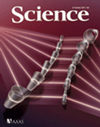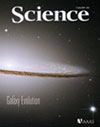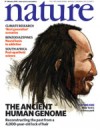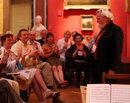 Artist and self-styled experimental philosopher Jonathon Keats is hoping to persuade the art world to join scientists in the Copernican Revolution—nearly 5 centuries late. In 1543, Nicolaus Copernicus made the humbling observation that the Earth revolves around the sun. Modern physicists often cite the “Copernican principle” that, as nature’s rules are the same everywhere, the human viewpoint isn’t unique. Continue reading The Story Is Dead. Long Live the Story.
Artist and self-styled experimental philosopher Jonathon Keats is hoping to persuade the art world to join scientists in the Copernican Revolution—nearly 5 centuries late. In 1543, Nicolaus Copernicus made the humbling observation that the Earth revolves around the sun. Modern physicists often cite the “Copernican principle” that, as nature’s rules are the same everywhere, the human viewpoint isn’t unique. Continue reading The Story Is Dead. Long Live the Story.
Tag Archives: Art
Miniature Art Masters
 Microbiologist Rosa María Montes Estellés once infected a church mural with bacteria. But it was for a good cause: The bacteria ate their way through 4 centuries of grime encrusted on a mural at Santos Juanes Church in Valencia, Spain, exposing the underlying colors.Bacteria are only the latest tool in the art restorer’s arsenal. Restorers use microabrasion, burly bristles, and chemical washes to strip layers of pollution from buildings, statues, and paintings. But each method has shortcomings: They can put the underlying artwork at risk or poison workers, and they often require slow and painstaking manual labor. So in 2005, a group of Italian art restorers tried a new tack: They bred bacteria to remove an obstinate layer of collagen from the murals of Campo Santo di Pisa. Continue reading Miniature Art Masters
Microbiologist Rosa María Montes Estellés once infected a church mural with bacteria. But it was for a good cause: The bacteria ate their way through 4 centuries of grime encrusted on a mural at Santos Juanes Church in Valencia, Spain, exposing the underlying colors.Bacteria are only the latest tool in the art restorer’s arsenal. Restorers use microabrasion, burly bristles, and chemical washes to strip layers of pollution from buildings, statues, and paintings. But each method has shortcomings: They can put the underlying artwork at risk or poison workers, and they often require slow and painstaking manual labor. So in 2005, a group of Italian art restorers tried a new tack: They bred bacteria to remove an obstinate layer of collagen from the murals of Campo Santo di Pisa. Continue reading Miniature Art Masters
Date and create
 The offspring of a speed-dating mixer between young scientists and designers is exhibited at London’s Dana Centre this week. On display are prototypes of three designs that communicate the broad themes of energy and recycling, synthetic and systems biology and imaging. The winning entries were selected from the ideas of 30 pairs of graduate students who were introduced at an interdisciplinary speed-dating event in May last year.
The offspring of a speed-dating mixer between young scientists and designers is exhibited at London’s Dana Centre this week. On display are prototypes of three designs that communicate the broad themes of energy and recycling, synthetic and systems biology and imaging. The winning entries were selected from the ideas of 30 pairs of graduate students who were introduced at an interdisciplinary speed-dating event in May last year.
See the rest of the review on Nature’s website [html] or as it appeared in print: [pdf]
A Musical Tribute to Darwin and the Earth
 Charles Darwin may have had his biggest impact on biology, but he began his scientific career as a geologist. So it’s appropriate that earlier this year, retired geologist John Ramsay, who had long studied the famed biologist’s life, accepted a commission to compose a Darwin-themed string quartet.
Charles Darwin may have had his biggest impact on biology, but he began his scientific career as a geologist. So it’s appropriate that earlier this year, retired geologist John Ramsay, who had long studied the famed biologist’s life, accepted a commission to compose a Darwin-themed string quartet.
Performed by the Fitzwilliam String Quartet, Ramsay’s composition premiered in Cambridge, U.K., during the Darwin Festival on 7 July 2009. The Darwin Quartet gave its second performance late last month during the triennial Cambridge Music Festival. The two festivals jointly commissioned the piece, and Ramsay hopes the Fitzwilliam Quartet will record the composition next year.
Read the rest of this story at Science Magazine’s Origins blog: [html]